Green Line Records, a record label run by Northeastern students, is looking for the next big thing in Boston’s music scene
Green Line Records is a boon for Boston musicians and is unlike any other university record label, not just in what services it provides but how –– and for how much –– it provides them.

If you have your ear to the ground for up-and-coming artists, you’ve likely heard Mei Semones’ name. A singer-songwriter who originally hails from Boston, Semones’ sound, which combines indie pop, jazz and bossa nova, has racked up coverage at Rolling Stone and festival slots at South by Southwest.
But one thing you might not know is how much a group of Northeastern University students is responsible for her recent success. Green Line Records, Northeastern’s student-run record label, recorded her 2022 EP ‘Sukikirai 好き嫌い,’ a few years before her star was on the rise.
In fact, it might surprise you just how much of a role Green Line is playing in Boston’s music scene. Run entirely by students, Green Line does everything a record label would do –– from talent scouting and recording to promotion and licensing –– and all without taking a cut.
“It’s pretty well known, at least with the music industry, that [most labels] are out for profit and profit only, and they’re this big machine,” says Jonathan Klopp, vice president of Green Line and a music industry student at Northeastern. “But the fact that we have all these students that are just willing to put in the work … for someone else’s passion project is really beautiful.”
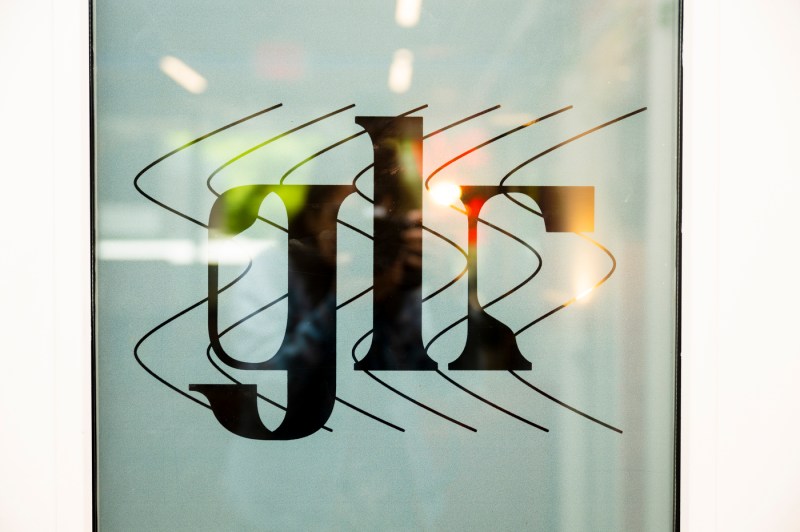

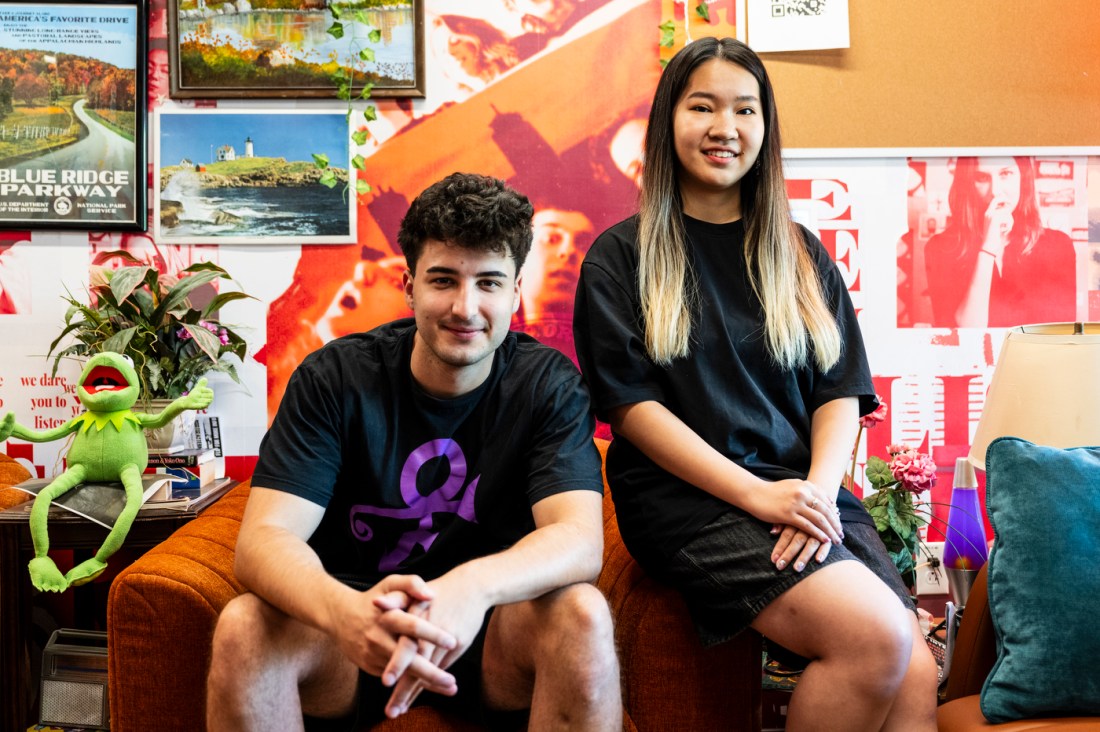
The only thing the members of Green Line get is experience working in “a fully functional record label,” Klopp says, and a producing credit on the artist’s recording.
Michelle Wu, president of Green Line who is studying music industry and communications at Northeastern, says for people interested in going into an industry that requires on-the-job training, Green Line is an invaluable stepping stone to working in the music industry.
“Green Line provides a great platform for people like us who want to be in the industry but where classroom knowledge is definitely not enough,” Wu says. “This is a great platform where you can get hands-on skills by working with real-world clients.”
For up-and-coming artists, having access to all the services of a real record label while maintaining complete control over the rights to their music is an incredibly rare proposition in the industry, says Ariana Borromeo, co-head of Green Line’s artist and repertoire department.
“It’s just for the sake of meeting these people who are genuine creatives … who are really incredible musicians,” says Borromeo, who studies music industry at Northeastern.
Founded in 1998, Green Line is focused on rising Boston-based artists and, with the exception of the winners of Northeastern’s Battle of the Bands, does not sign students at the university. The idea is to record and release a single or EP for signed artists, all within a semester.
The process starts with the A&R department, which scouts artists by combing through social media and attending basement shows and concerts in Boston’s underground house scene, Borromeo says. A&R reps will decide on artists they are interested in contacting and set up meetings where they will discuss the concept of Green Line and, hopefully, sign the artist to the label.
After the artist signs, they are assigned a recording team that will play to the artist’s specific strengths. In the case of Caramel, an R&B artist who recorded the single “Nameless” at Green Line, co-head of engineering Josh Tochner led the project because he specializes in recording hip-hop and R&B music.
From there, Green Line’s engineers record, mix and master the artist’s project, which can range in complexity based on the artist’s vision.
“[For “Nameless,”] we did a whole day where we did choir recording, and then the next day we recorded the violinist,” Tochner says. “Then the bassist came in and we recorded that. Then we did vocal mixing and vocal recording, and then lastly adding extra production and getting the mix and master right.”
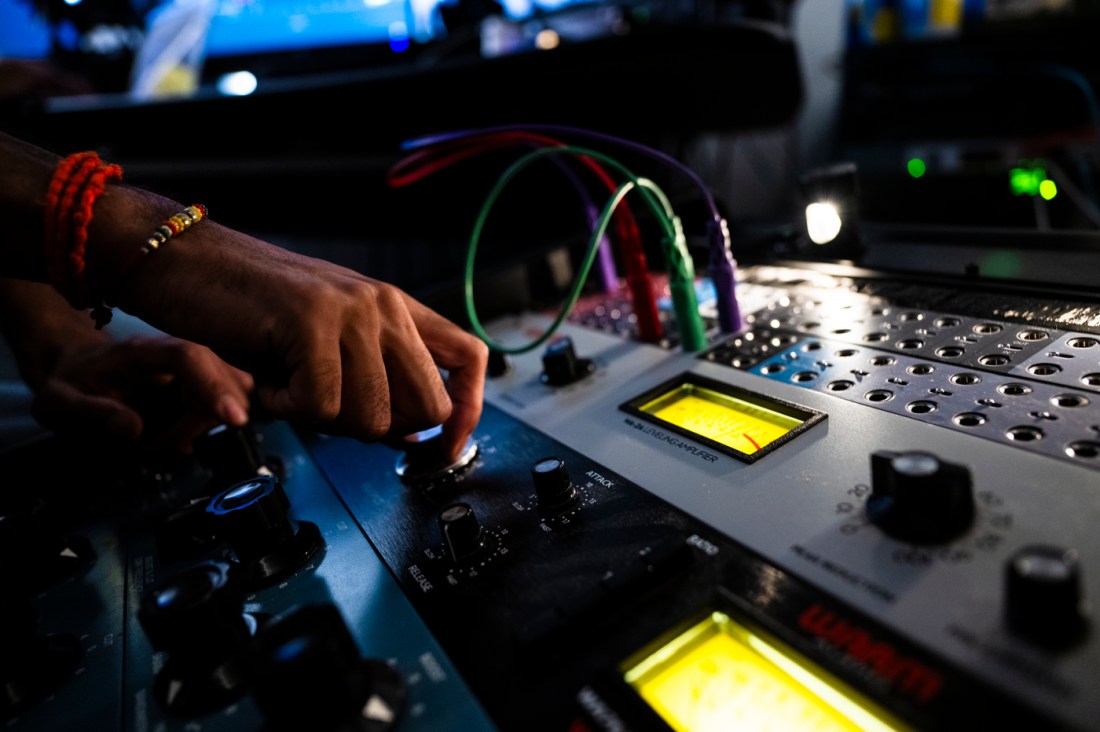
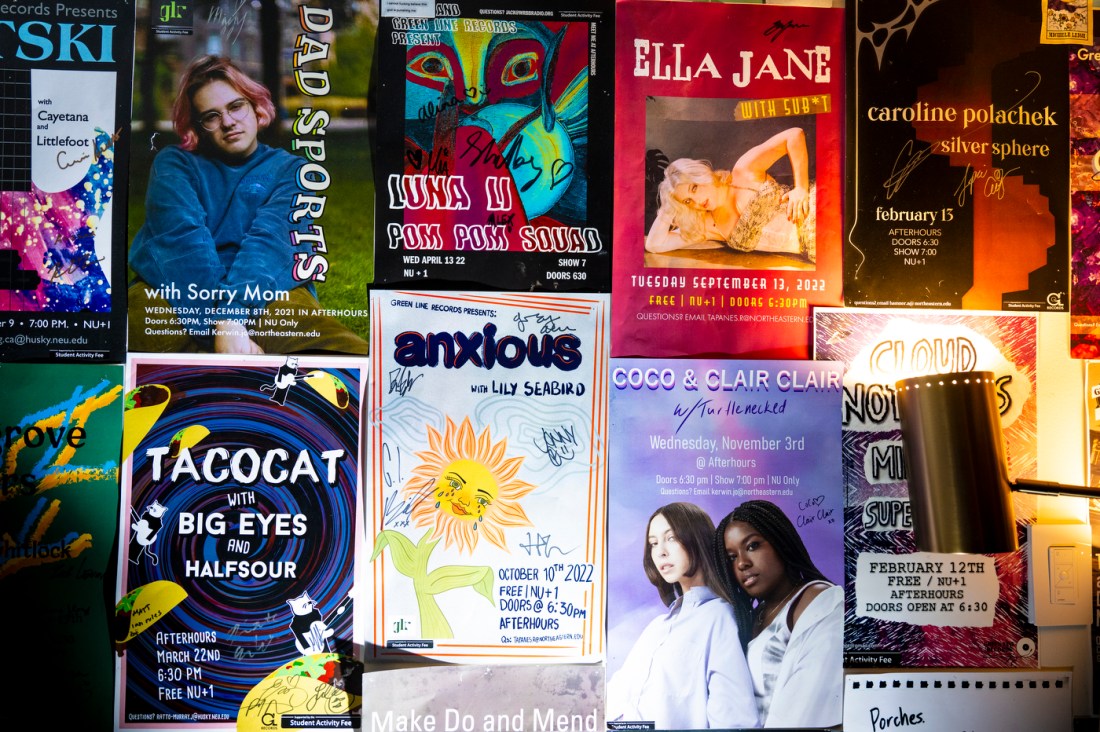
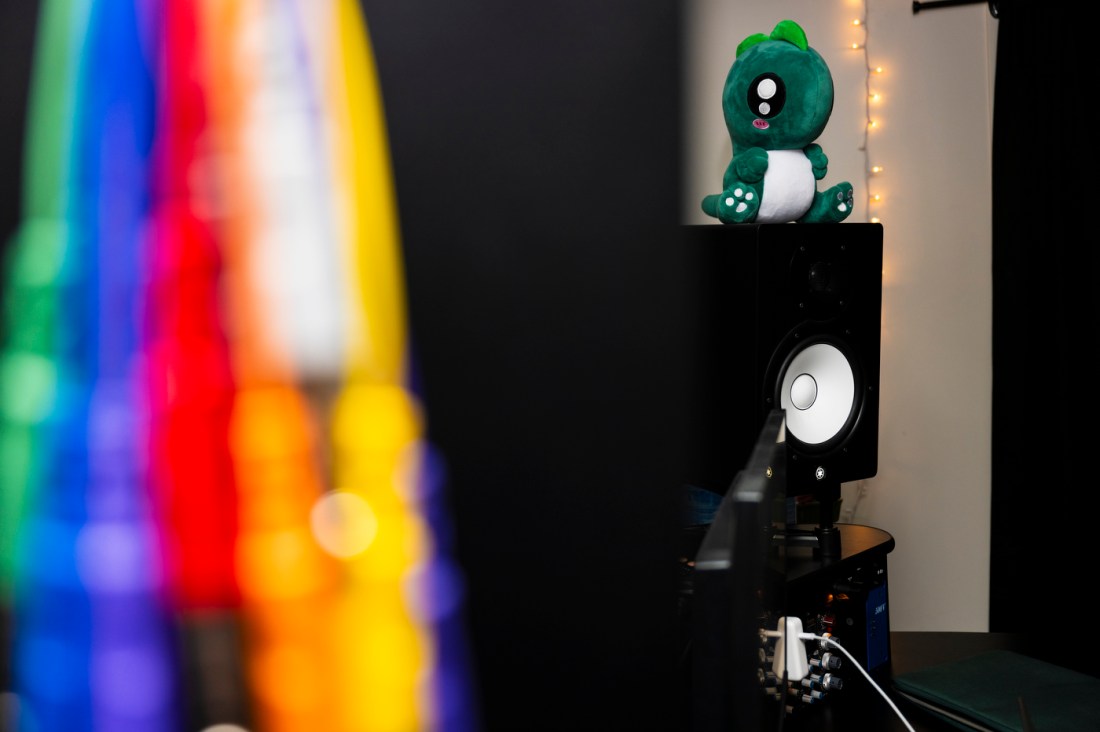
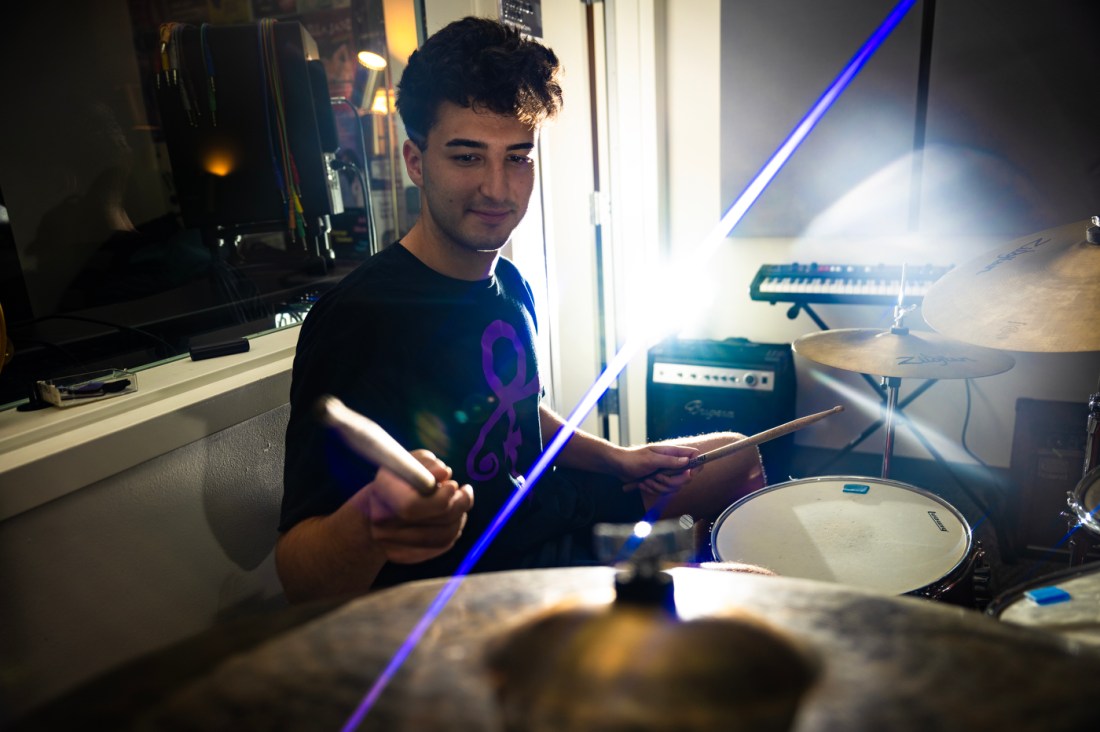
Each project has a lead and assistant engineer along with two engineers in training.
“We all start as EITs,” says Sumant Sagar, co-head of recording. “You just have to work your way up. We modeled it after a typical recording studio.”
Green Line also assigns each artist a team from the creative services department, which handles the release plan for the single, including cover art design and promotion by way of social media marketing, photo shoots, music videos and press outreach.
Green Line also has two departments that operate somewhat separately from its recording arm: events and licensing. The events team finds and books nationally-known acts to perform in Northeastern’s 200-capacity venue, After Hours. They also organize the year-end Green Line Showcase, which spotlights Green Line-signed artists.
Good Dog Licensing, the organization’s recently formed licensing department, is where Green Line really distinguishes itself from other university record labels. The team at Good Dog connects independent artists from around the world with independent filmmakers who are looking for licensed music to fit their projects.
“With royalties, if there are any, [the artists] get the money from that. They get exposure from whatever film their music is in and then experience with the whole licensing process,” says Cami Parrish, head of Good Dog. “Then from the filmmaker side of things, it’s a fast, easy and free way to get good music into your film.”
David Herlihy, Green Line’s faculty adviser, teaching professor of music and former frontman of Boston-based alt-rock band O Positive, says it’s hard to understate the value Green Line brings to Boston artists and the city’s active music scene as a whole. The students who run the record label and learn the ins and outs of the music industry through their classes end up teaching artists about the complexities of navigating an industry that can be opaque at best for newcomers.
“The issues of ownership and authorship and royalties and revenue streams, it’s vast, and most people in bands aren’t thinking about them,” Herlihy says. “If I was an artist now, I would be jumping up and down to have this being done for me. … In the beginning when I was trying to get gigs, I desperately needed more people, more oars in the water of my boat.”
